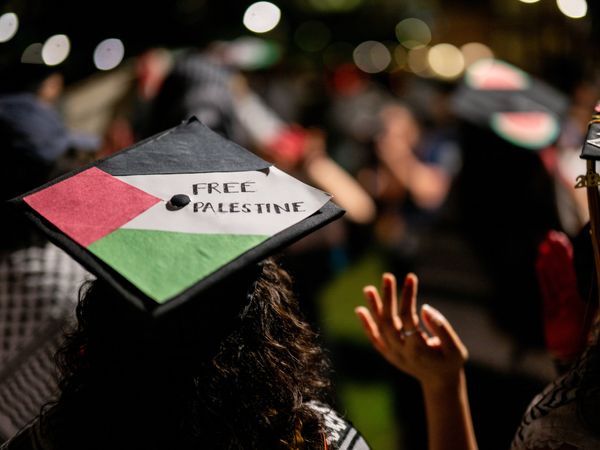
Karuizawa (Japan) (AFP) - The G7's top diplomats arrived in the Japanese resort town of Karuizawa Sunday for talks set to be dominated by twin crises: China's growing pressure on Taiwan, and Russia's war in Ukraine.
The foreign ministers arrived by special bullet train for discussions that will set the stage for a leaders' summit in Hiroshima next month.
There is no shortage of challenges to discuss, but recent regional events are likely to sharpen the focus on Asia.
The meeting comes days after China concluded major military drills around self-ruled Taiwan, and after North Korea launched what it said was a new solid-fuel intercontinental ballistic missile.
Host Japan is keen to ensure regional challenges top the agenda, and will emphasise its belief that Russia's invasion of Ukraine heightens the need for vigilance in Asia.
"Japan's basic position...on Ukraine is that the security of Europe and that of the Indo-Pacific cannot be discussed separately," a Japanese government official said ahead of the talks.
"They are intertwined with each other."
The G7 has regularly warned China against attempts to seize Taiwan, and individual members have sounded the alarm in recent days.
"A military escalation in the Taiwan Strait...would be a horror scenario for the entire world," German Foreign Minister Annalena Baerbock said Friday in Beijing.
But there will be renewed focus on the grouping's language after recent comments by French President Emmanuel Macron.
His insistence, after a trip to Beijing, that Europe should avoid "crises that aren't ours" has raised eyebrows and ire among Paris's allies, while delighting Chinese officials.
Paris has worked to temper the reaction, insisting France's views have not changed, and most observers expect the group to reiterate previous positions warning China against "changing the status quo by force".
'Freedom of manoeuvre'
Still, Macron's comments reflect the reality that members of the bloc -- which groups Japan, the United States, Britain, Canada, France, Italy, Germany and the European Union -- want room to manoeuvre on China policy, experts say.
And that means leaving the door open for cooperation, said European Union foreign policy chief Josep Borrell, who is attending remotely after testing positive for Covid.
"China has become increasingly assertive...but we have to continue engaging with China, looking for solutions to global challenges," he told reporters.
A senior US State Department official said discussions would reflect "collective concern about a number of the actions that China is taking," and discussion would focus on "how we can continue to be fully aligned on a common and concerted approach".
Consensus will be simpler on Ukraine, but no substantive new measures are expected on top of existing sanctions by the bloc.
"We will sharpen our commitment," Baerbock said on a stop in Seoul before arriving in Japan.
"Now it is a question of showing (Russian President Vladimir) Putin we are determined that he will not achieve his goals through attrition and fatigue."
The bloc could offer backing for a war crimes tribunal and will likely express renewed concern about Russian nuclear sabre-rattling.
Both Russia's invasion and growing concerns about China have put renewed focus on economic security and the need to diversify supply chains for everything from energy to semiconductors.
Tokyo and Washington have warned about "economic coercion", and G7 ministers are expected to pledge measures to counter the issue.
The two-day meeting will also tackle international crises, from the Taliban's continuing grip on Afghanistan to the military junta's latest attacks in Myanmar.
Nuclear proliferation will also be up for discussion ahead of the leaders' summit in Hiroshima this May, where Prime Minister Fumio Kishida wants the push for a nuclear-free world to be a central topic.
He called Sunday for Japan to ramp up security to protect G7 events, a day after he escaped unharmed when an explosive was thrown at him during a campaign event.







